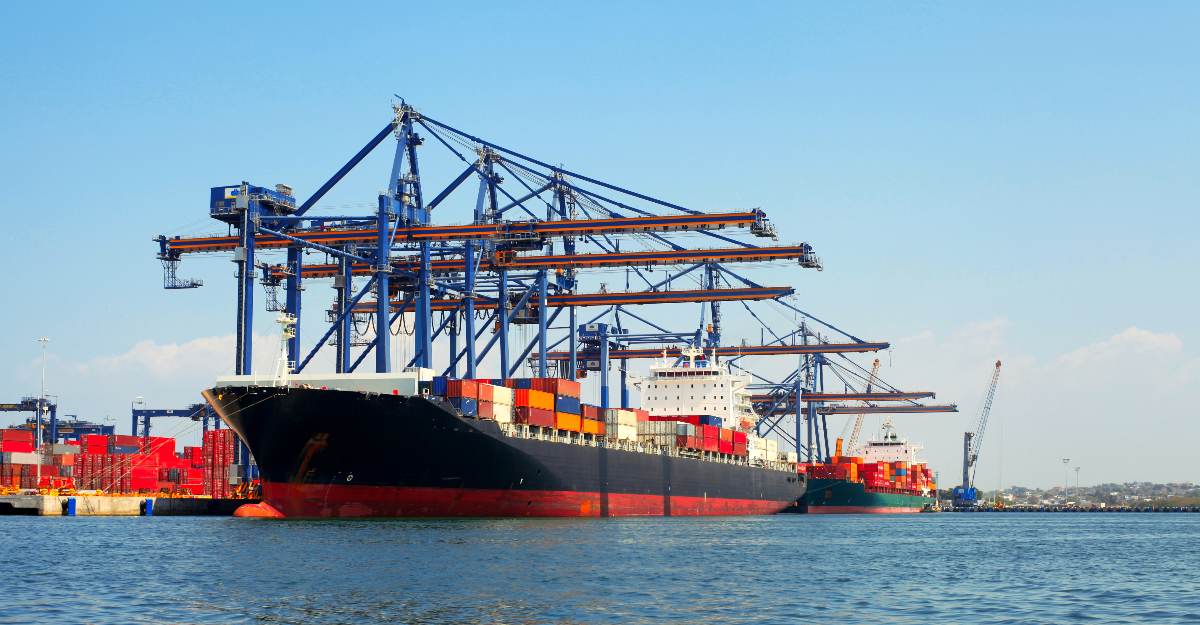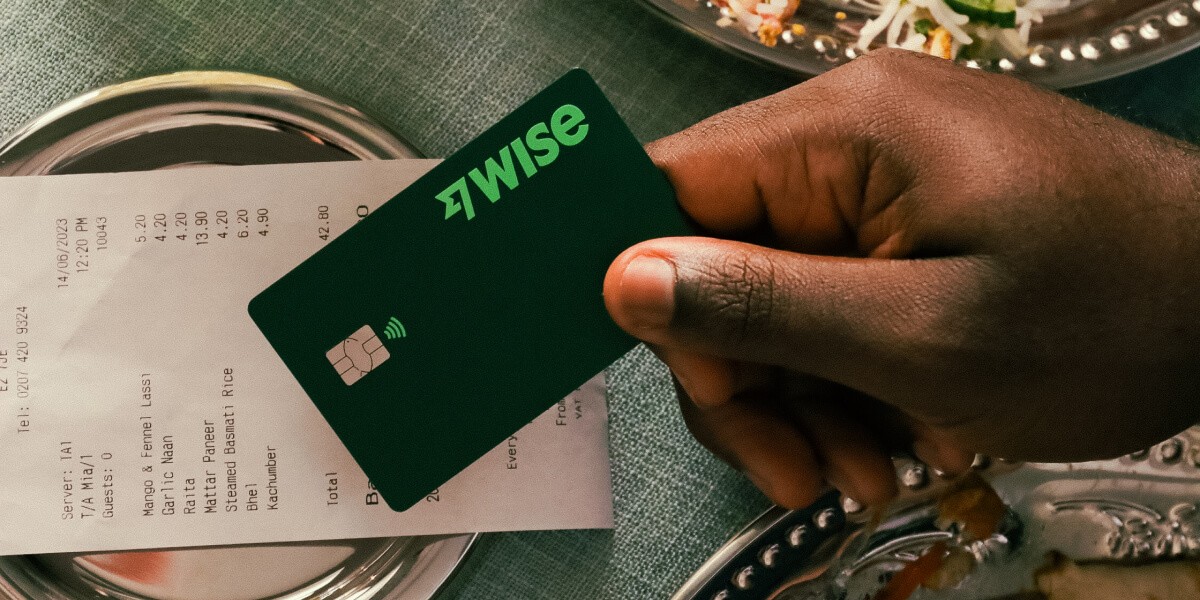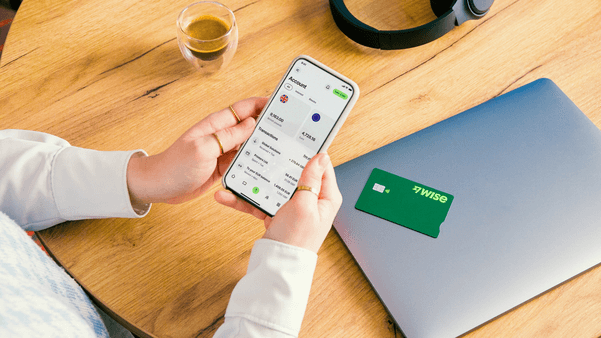5 Ways to Stand Out and Boost Black Friday Sales
Black Friday is the day after Thanksgiving, falling on Friday 29th November in 2024. It’s known for being a perfect time for snagging a bargain, opening the...

If your business is planning on importing goods from Spain to the UK, you’ll need to understand how the importing process works.
To make it just a little easier for UK businesses, we’ve put together a complete guide on how to import goods to the UK from Spain. So read on for a walk-through of the process including info on import licences, shipping, customs clearance and more.
We’ll also show you a cost-saving way to pay your Spanish suppliers in euros - using a Wise Business account.
💡 Learn more about Wise Business
Let’s start by tackling some of the most commonly asked questions about importing from Spain to the UK.
You’ll only need an import licence to bring specialist types of goods into the UK. This includes things like hazardous chemicals, animals and animal products, drugs and medicines, and of course weapons.¹ Find out how to get an import licence in the UK here.
One crucial thing you will need as an importer is an Economic Operators Registration and Identification number (EORI) number. This is issued by HMRC as part of the registration process for importers and exporters.¹
Other required steps to start an import business in the UK include:
- Checking the labelling and licensing laws relating to the goods you’ll be importing
- Checking if you need to register for VAT
- Making sure that the Spanish suppliers you’re working with have the required export declarations, licences and certificates
Researching what to import from Spain? As a starting point, these are the most common items the UK imports from the Mediterranean country:²
- Cars, motor vehicles and delivery trucks
- Gold
- Gas turbines
- Aircraft parts
- Fruits and vegetables
- Packaged medication
- Vaccines
- Perfume
- Wine
- Iron blocks
- Unglazed ceramics
There are a few options for shipping goods from Spain to the UK.
Road freight is perhaps one of the most efficient and fastest ways to transport goods from Europe, but you can also look into air, sea and rail freight shipping.
To choose the right shipping option, you need to weigh up cost vs. speed, while also selecting the most suitable method for the quantity and type of goods you’re transporting.
The average time it takes to ship goods from Spain to the UK varies depending on the freight method chosen. Here’s an idea of average times for each:
- Road freight - around 2-3 days³
- Air freight - around 1-3 days⁴
- Sea freight - 2-10 days, depending which ports you’re shipping from and to³
Bear in mind that it could take longer for your goods to clear UK customs, especially if your paperwork isn’t fully in order.
When you import goods into the UK from abroad as a business, you’ll need to pay customs duty.
You can use the government’s Trade Tariff tool to look up the amount of import duty you’ll have to pay on goods sent from Spain to the UK.
To use this tool, you’ll first need to find the correct commodity code for your goods. This is known as a Harmonised System (HS) code, and it’s used to describe particular trade products so that the right tariff can be charged for them.
Take a look here to find out more about import duty and how to calculate it.

Now, let’s take a closer look at the process of buying goods from Spain and importing them into the UK.
Below, you’ll find a step-by-step guide covering what to expect, and what you’ll need to do as an importing business based in the UK.
The first step in the process is finding your new Spanish suppliers.
There are a few different ways to find potential suppliers in Spain, including online B2B marketplaces, trade associations and sourcing agents. You can also use recommendations from other importers working within the same markets.
Another way of finding suppliers for a specific product or industry is to attend trade fairs in the country you intend to buy from. This means flying to Spain, and visiting a trade fair where you can check the products first handed, get to know suppliers in person and even negotiate better deals. To discover Spanish trade fairs you can check the Jetro Database.
If you decide to visit a trade fair in Spain, Wise Business debit card can be a great way to spend in Euros with ease.

You can pay in EUR with your Wise Business card even if you don't have a balance for the currency on your multi-currency account. Wise's smart technology will convert your spending automatically to GBP with the mid-market exchange rate. What is even better? You earn 0.5% cashback on your purchases.
Get started with Wise Business 🚀
It’s really important to ensure that any suppliers you work with are properly set up to export to the UK. They may need a licence or certificates to send goods to the UK, along with needing to make export declarations in their own country.
It’s also necessary to do your due diligence when it comes to checking the quality of goods. For starters, you can request sample products before signing an agreement. Suppliers you work with should also be able to provide the required documentation for their goods.
To choose reliable suppliers, you should assess each on their communication, commitment to meeting delivery schedules and reputation within the wider market.
With your shortlist of Spanish suppliers drawn up, the next and most important thing to do is negotiate payment terms.
Some of the most common payment terms when importing to the UK include the following:
- Open account
- Letter of credit
- Bank collection
- Advance payment
You’ll need to have a discussion with your suppliers to find a payment method that works well for both parties.
For importers, a Wise Business account could be the ideal solution. It’s a powerful multi-currency account that lets you pay suppliers in their preferred currency, whether it’s Euros, Pounds or even US dollars.
All currency conversions are carried out using the mid-market exchange rate. When combined with low, transparent fees, this could make Wise a cheaper option than using your bank to pay overseas suppliers.
Get started with Wise Business 🚀
You’re nearly ready to place your first order, but there’s another important thing to organise. This is shipping from Spain to the UK, and there are a few options available.
Available transport options include road, air, sea and rail freight.
Air freight is the fastest, although it can be the most expensive. Sea freight is slower but more affordable. As Spain is connected to the UK by a road and rail network, you could also look into the options for road or rail freight.
If time isn’t a factor and you’re trying to find the cheapest option, you could even consider multi-modal transport.
For some importers, it’s simply easier to work with a specialist freight forwarding service, who can handle the process on your behalf.
The last crucial step is to get your shipment ready to clear UK customs. You’ll need to do the following:¹
- Decide if you’ll be making customs declarations yourself, or if a freight forwarder, customs agent or other third party will do it
- Find out the commodity codes and work out the value of your goods. This will help you calculate customs duties and identify if any goods require certificates or licences
- Check the labelling and marking rules for your goods
- Arrange for the goods to be inspected (if applicable)
- Submit and manage your import declaration
- Pay the required import duty and VAT
Importing and customs processes for the UK may be a little complex, but paying your Spanish suppliers doesn’t have to be.

Open a Wise Business account and you’ll be able to pay suppliers in their own currency. You can send Euros or 40+ other currencies in just a few clicks.
You can easily make batch payments when paying multiple suppliers at once, and even automate the process using the Wise API to save even more time.
Wise payments are fast and secure (even for large amounts). Best of all, you’ll only pay low, transparent fees and always get the mid-market exchange rate.
Get started with Wise Business 🚀
And that’s it - your essential guide to importing goods from Spain to the UK. We’ve run through the requirements for licences and customs clearance in the UK, along with how to find suppliers and negotiate payment terms.
If you’re new to importing from Europe, the information we’ve covered here should be a good starting point for your new venture. There’s lots to arrange and plenty of paperwork to do, but you should now be ready to start looking for Spanish suppliers. Good luck!
Sources used for this article:
Sources checked on 09-05-2024.
*Please see terms of use and product availability for your region or visit Wise fees and pricing for the most up to date pricing and fee information.
This publication is provided for general information purposes and does not constitute legal, tax or other professional advice from Wise Payments Limited or its subsidiaries and its affiliates, and it is not intended as a substitute for obtaining advice from a financial advisor or any other professional.
We make no representations, warranties or guarantees, whether expressed or implied, that the content in the publication is accurate, complete or up to date.

Black Friday is the day after Thanksgiving, falling on Friday 29th November in 2024. It’s known for being a perfect time for snagging a bargain, opening the...

Black Friday - Friday 29th November in 2024 - kicks off the end of year shopping period, with huge uplifts in on and offline sales as people grab a bargain...

Leveraging technology in business has always been a smart way to get ahead of the game. But with the fast pace of tech advancements we’ve seen recently,...

Read our guide to the best accounting software for startups in the UK, including QuickBooks, Sage, Xero, NetSuite, FreshBooks and FreeAgent.

Read our essential guide to the best business bank accounts for startups in the UK, comparing all of the most popular providers

Read our guide to the best online business bank accounts in the UK, including Tide, Starling, Revolut, ANNA and Wise Business.